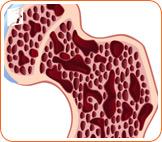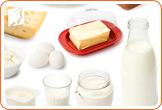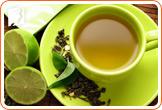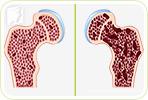Many women can help prevent osteoporosis by consuming foods that are full of essential nutrients. However, building a calcium-rich diet can be like negotiating a business deal or a good game of chess. In order to win, you have to intake more vital nutrients from the foods you consume every day and limit ingredients that are harmful to your bones.
How Does Osteoporosis Affect Me?

Osteoporosis occurs when your bones become weak from losing minerals and density. Women who are going through menopause are especially susceptible to this disease because estrogen affects the bones' ability to build mass. When estrogen levels drop during the menopause transition, bones begin to lose more calcium than they absorb, which can lead to a loss of bone mass. The best way to deal with osteoporosis is through prevention, so read on for three easy tips to improve your diet and avoid osteoporosis.
Get enough calcium and vitamin D

In addition to being the most essential nutrient for bones, calcium increases the effectiveness of other medicines your doctor may prescribe if you've already been diagnosed with osteoporosis.
There is some debate over how much calcium is enough, but a healthy amount is between 1,200 and 1,500 milligrams a day. It's best to divide this into several servings; usually 400 - 500 milligrams because that is the most your body can process at one time. That equates to two ounces of low-fat cheese, a cup of fat-free plain yogurt, or about a cup and a half of fortified breakfast cereal.
Vitamin D will help you absorb all of the calcium you get from those foods. Good sources of this nutrient include spending time in natural sunlight, as well as fish like sardines, herring, and salmon.
Trade coffee and soft drinks for herbal tea

Soft drinks can be harmful to your bones due to high levels of phosphoric acid. This compound takes calcium from your bones and increases the risk of osteoporosis.
You should limit your caffeine intake because this compound can also take calcium from your bones. Research indicates that about 300 mg of caffeine a day is acceptable, as long as you consume enough calcium through food and supplements. That's about two cups of coffee. If you're really concerned about bone health, switching to decaf is a good alternative. Herbal tea without caffeine is another possible alternative.
Eat fresh foods, not processed ones

Although processed foods may be convenient and tasty, they usually contain a lot of salt, which causes you to lose minerals in your bones. Try to limit or avoid high-salt foods such as deli meats, canned foods, and fast food.
A healthy alternative to ready-made or packaged food is fresh fruits and vegetables, which tend to be high in nutrients like potassium, fiber, and vitamin C. Instead of eating a bag of chips, grab an apple or banana. And instead of eating out for lunch, pack a lunch with a leafy green salad and a protein-rich serving of meat or fish.
Did You Know?
Osteoporosis is difficult to detect because symptoms usually don't develop until the later stages of the disease. Symptoms include fractured bones, back pain, stooped posture, and tooth loss.
Click on the following link to read more about the multiple treatments for osteoporosis.
Sources
- Heaney, R.P. (2006). Role of dietary sodium in osteoporosis. Journal of the American College of Nutrition, 25(3 Suppl), 271S-276S. Retrieved from www.ncbi.nlm.nih.gov/pubmed/16772639
- New York State Department of Health. (2015). Calcium and Healthy Bones. Retrieved January 22, 2016, from https://www.health.ny.gov/publications/1982.pdf
- Cleveland Clinic. (n.d.). Menopause and Osteoporosis. Retrieved January 22, 2016, from https://my.clevelandclinic.org/health/diseases_conditions/hic-what-is-perimenopause-menopause-postmenopause/hic_Menopause_and_Osteoporosis

